
FIVE-YEAR-OLD Gurnoor Singh suffers from an uncommon problem. Bits of his milk teeth keep breaking off randomly. Gurnoor's father Sukhvinder Singh, a farmer from Ghaunspur village in Ludhiana district, Punjab, says many children in the village have the same condition.
Over 200 km southwest of Ludhiana, in Burj Mohar village of Fazilka district, lives nine-year-old Hargun Kaur. She, too, suffers from an obscure tooth ailment. Her permanent teeth have begun to emerge without the milk teeth having fallen off. Her grandfather Kuldeep Singh, who takes care of Hargun since her father has cognitive and speech impairment, says that dentists attribute such problems to long-term consumption of water laden with contaminants, such as heavy metals and fluorides.
What possibly connects Gurnoor and Hargun, apart from their tooth ailments, is the contamination source of the waters they consume-Buddha Nullah, a 40-km seasonal tributary of the Sutlej river (see 'Contamination route', p17). It originates in Ludhiana, passes through the breadth of the district as well as along Ghaunspur, and merges with the Sutlej in the same district. In its course, it becomes a receptacle of Ludhiana's substantial industrial discharge (the district is Punjab's foremost industrial hub, with some 2,000 electroplating and dyeing units) through drains and sewer networks that empty into it.
This story is from the {{IssueName}} edition of {{MagazineName}}.
Start your 7-day Magzter GOLD free trial to access thousands of curated premium stories, and 9,000+ magazines and newspapers.
Already a subscriber ? Sign In
This story is from the {{IssueName}} edition of {{MagazineName}}.
Start your 7-day Magzter GOLD free trial to access thousands of curated premium stories, and 9,000+ magazines and newspapers.
Already a subscriber? Sign In

On shaky ground
Despite reporting net gains in green cover, the latest forest survey shows degradation of natural forests, particularly in ecologically sensitive hotspots

Burden of proof
The government's drive for e-KYC verification to ensure rightful targeting of beneficiaries has proved exclusionary for many

Rupee slide impacts agricultural trade
THE UNION Cabinet on January 1, 2025, approved the extension of a subsidy package of ₹3,500 per tonne on di-ammonium phosphate (DAP) for companies.
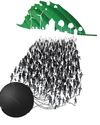
THE 500 GW SWITCH OVER
Coal is the king of energy at present. India needs to dislodge it with clean energy for an equitable green transition
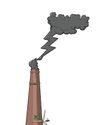
MANIFESTING 500 GW
Ensure that renewable energy is available round the clock.Establish a viable market and reward those who take lead

Lifting a curse
How Gangabai Rajput helped her water-scarce village in Madhya Pradesh let go of superstition and revive an ancient waterbody
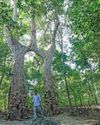
HOLD THEM SACRED
The Supreme Court has recommended that the Union government create a comprehensive policy for the governance and management of sacred groves across the country
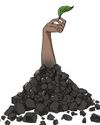
REPORT CARD 2024
Coal is still the king in terms of electricity generation. But new renewables, mainly solar power, have shown an impressive growth

'India a laboratory for seismologists'
India is no stranger to earthquakes. In recent memory, Latur and Bhuj districts in Maharashtra and Gujarat witnessed devastating tremors in 2003 and 2001 respectively. Such quakes leave clues that can aid preparations for future events, say seismologists KUSALA RAJENDRAN, professor, Indian Institute of Science, and CP RAJENDRAN, adjunct professor, National Institute of Advanced Studies. The Rumbling Earth-The Story of Indian Earthquakes, captures their work on historical as well as recent quakes. In an interview with ROHINI KRISHNAMURTHY, they discuss the science of earthquakes, why the Himalayas are due for a huge event and why prediction remains a challenge. Excerpts:
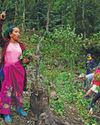
Capturing Siang
As India pushes for a mega-dam on the Siang river to counter China's upstream projects, the Adi tribal community of Arunachal Pradesh fears losing ancestral land